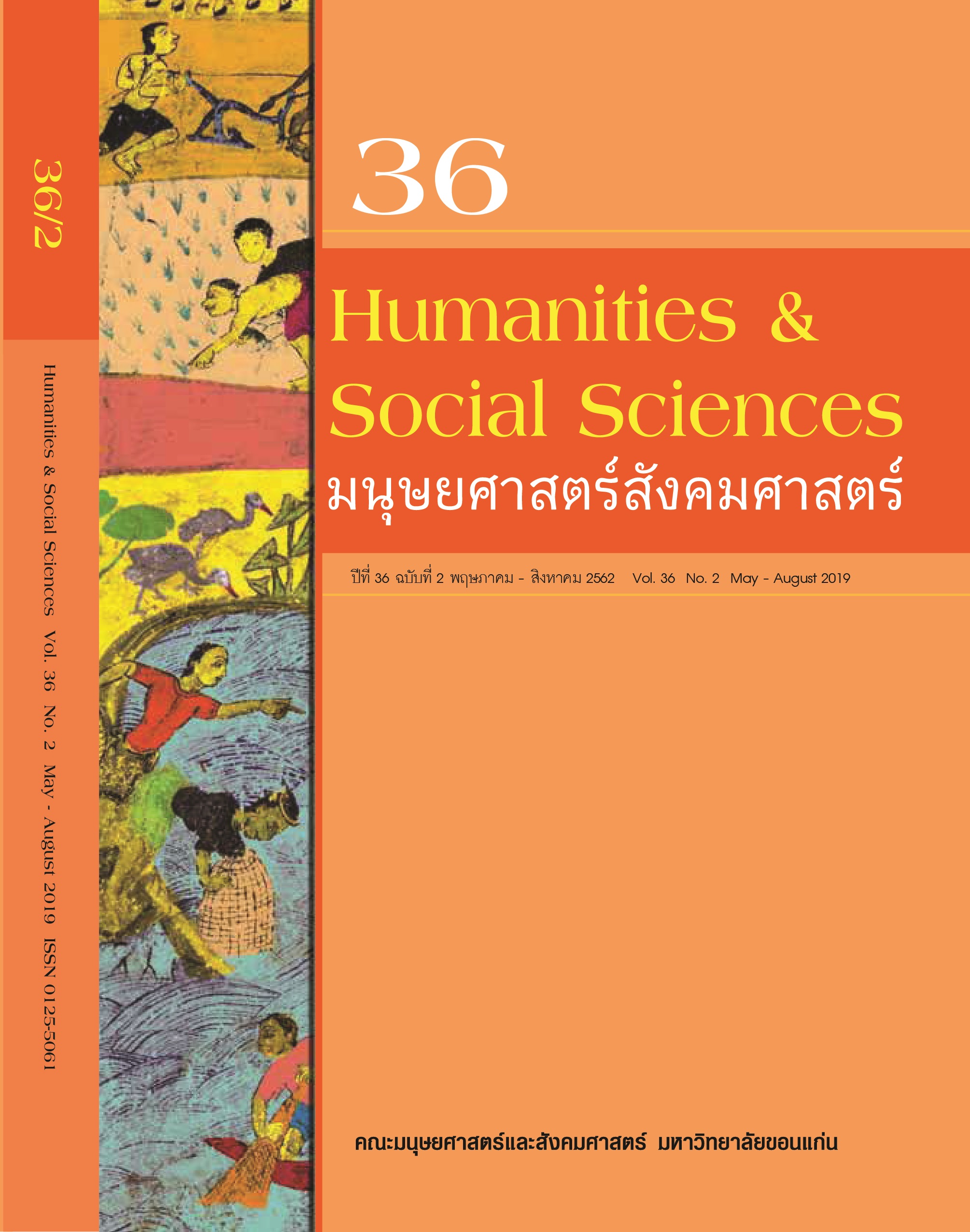การแก้ไขปัญหาระบบเศรษฐกิจแบบทุนนิยมด้วยหลักบุญกิริยาวัตถุและกามโภคี/Solving the Problems of Capitalism with the Principles of Meritorious Action and Kam Phokhi
Keywords:
capitalism, economics system, Theravada Buddhism, the principle of BuddhismAbstract
The objectives of the study were to provide solutions to the capitalist economic system according to the principles of Theravada Buddhism. It was analyzed using the primary sources and secondary sources. This study presented the issuing of the capitalist economic system as followed: 1) the capitalist system unequally distribute capital goods which abnormal of the human actually doing 2) the capitalist system racked over proletarians and, 3) the capitalist system racked over the humanity of Labor. Therefore, author brings solutions as the principles of Buddhism which were the principle of meritorious action deal with equal charity and the principle of enjoying of senses to solve the rack problem also in human dignity. In addition, the study proved that the principle of Buddhism significance related to social living management base on the economic system as well.
References
ชลลดา นาคใหญ่. (2557). แนวคิดความเสมอภาคในปรัชญาของคาร์ล มาร์กซ์, วิทยานิพนธ์อักษรศาสตรมหาบัณฑิต สาขาวิชาปรัชญา. บัณฑิตวิทยาลัย: จุฬาลงกรณ์มหาวิทยาลัย.
ชลลดา นาคใหญ่. (2558). ทุนนิยม: ปัญหาความไม่เสมอภาคและวิถีแห่งการกดขี่ขูดรีด. วารสารสมาคมปรัชญาและศาสนาแห่งประเทศไทย, 10(1).
เด่นพงษ์ แสนคำ. (2562). การให้เหตุผลสนับสนุนแนวคิดของคาร์ล มาร์กซ์, วารสารสังคมศาสตร์ มหาวิทยาลัยนเรศวร, 15(1).
นารีรัตน์ รักวิจิตรกุล. (2554). พุทธศาสน์กับการดำเนินชีวิต, พิมพ์ครั้งที่ 6. มหาสารคาม: อภิชาตการพิมพ์.
ปรีชา เปี่ยมพงศ์สานต์. (2558). เศรษฐศาสตร์การเมืองและทฤษฎีสังคมวิพากษ์, พิมพ์ครั้งที่ 2. ขอนแก่น : คณะมนุษยศาสตร์และสังคมศาสตร์ มหาวิทยาลัยขอนแก่น.
พุทธทาสภิกขุ. (2522). ธรรมกับการเมือง: คำบรรยายประจำวันเสาร์ที่ลานหินโค้ง สวนโมกข์ ภาคอาสาฬหบูชา 2519. สุราษฎร์ธานี: ธรรมทานมูลนิธิ.
พระพรหมคุณาภรณ์ (ป.อ. ปยุตฺโต). (2555). พจนานุกรมพุทธศาสตร์ ฉบับประมวลศัพท์, พิมพ์ครั้งที่ 23. กรุงเทพมหานคร: สำนักพิมพ์ผลิธรรม.
มหาจุฬาลงกรณราชวิทยาลัย. (2539). พระไตรปฎกภาษาไทย ฉบับมหาจุฬาลงกรณราชวิทยาลัย. กรุงเทพมหานคร: โรงพิมพ์มหาจุฬาลงกรณราชวิทยาลัย.
วัชระ งามจิตรเจริญ. (2552). แนวคิดในการใช้พุทธธรรมเพื่อดำเนินการทางเศรษฐกิจในสังคมทุนนิยม : กรณีศึกษา. รายงานการวิจัย. ศูนย์พุทธศาสน์ศึกษา: จุฬาลงกรณ์มหาวิทยาลัย.
สมเด็จพระมหาสมณเจ้า กรมพระยาวชิรญาณวโรรส. (2538). สารานุกรมพระพุทธศาสนา, พิมพ์ครั้งที่ 2. กรุงเทพมหานคร: โรงพิมพ์มหามกุฏราชวิทยาลัย.
สุรีย์ สุวรรณปรีชา. (2520). ความสัมพันธ์ระหว่างทฤษฎีความรู้และทฤษฎีการเมืองของปอบเปอร์. วิทยานิพนธ์อักษรศาสตรมหาบัณฑิต แผนกวิชาปรัชญา, บัณฑิตวิทยาลัย: จุฬาลงกรณ์มหาวิทยาลัย.
Calhoun, Craig J. (2002). Classical Sociological Theory, Oxford: Wiley-Blackwell.
Crafts, Nicholas FR. (1978). "Enclosure and labor supply revisited", Explorations in Economic History 15(2), 172.
G. A. Cohen. (1978). Karl Marx’s Theory of History: A Defense. Oxford: Oxford University Press.
Laycock, H. (1991). Exploitation via labour power in Marx. The Journal of ethics, 3(2), 121-131.
Marx, Karl. (1971). Capital: A critical analysis of capitalist production volume I, trans. Samuel Moore and Edward Aveling, Moscow: Progress Publisher.
Payutto, Phra Prayudh. (1995). Buddhadhamma: Natural laws and values for life, USA: State University of New York Press.



